Civil Liberties, Civil Rights, Human Rights, Targeting Muslims, War Resister
Podcast: Play in new window | Download


The Nakba Didn’t End in 1948, It Continues to Impact Palestinians Daily
On May 15, Palestinians marked the 75th anniversary of al-Nakba, which means “the catastrophe” in Arabic. On that date in 1948, Israelis ethnically cleansed nearly 750,000 Palestinians from their lands and destroyed more than 500 Palestinian towns and villages. In addition, on May 15, for the first time ever, the UN General Assembly officially condemned the Nakba.
May 15 was also the day that Israel and Palestinian Islamic Jihad agreed to a ceasefire brokered by Egypt to stop the violence that resulted in the deaths of 33 Palestinians and 2 Israelis. The Israeli assault on Gaza was the sixth such attack since 2007, when Israel imposed a permanent siege on Gaza, controlling the ingress and egress of Palestinians.
Israel maintains an illegal occupation of Palestinian territory. And the United States enables this occupation by providing $3.8 billion in military aid to Israel each year.
Guest – Michel Moushabeck, is a Palestinian American writer, editor, translator and musician. He is the founder and publisher of Interlink Publishing, a 36-year-old, Massachusetts-based, independent publishing house. Michel wrote the article titled, “The Nakba Didn’t End in 1948, It Continues to Impact Palestinians Daily,” which was recently published by Truthout.
—-
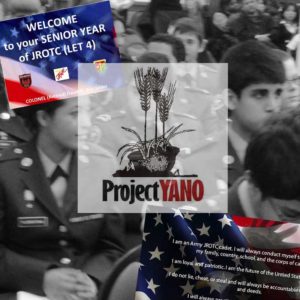
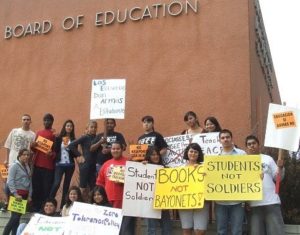
Junior ROTC In High Schools: Pressure To Join
On her first day of high school, Andreya Thomas and several other freshmen at Detroit’s Pershing High School learned they were enrolled in a class called J.R.O.T.C., or Junior Reserve Officers’ Training Corps. School administrators told them the program was mandatory.
Funded by the U.S. military, the program required students to wear military uniforms in class, recite patriotic declarations, and obey orders from an instructor who often yelled at them. When several tried to drop the class, school officials refused permission, even though the Pentagon says that requiring students to take the programs runs counter to its guidelines. The New York Times recently learned that thousands of public-school students were enrolled in J.R.O.T.C. either as a requirement or through automatic enrollment. Most of the schools with high enrollment numbers were attended largely by nonwhite students and those from low-income households.
Critics of Junior ROTC say that the program’s militaristic discipline prioritizes obedience over independence and critical thinking. And as we reported earlier on Law and Disorder, and now noted by the Times, the program’s textbooks often rewrite or downplay the failings of the U.S. government. With its concentration in schools with low-income and nonwhite students, some claim J.R.O.T.C. encourages students to enlist in the military rather than explore other routes to college or jobs in the civilian economy.
Guest – Rick Jahnkow works for two San Diego-based anti-militarist organizations, the Project on Youth and Non-Military Opportunities, or YANO, and the Committee Opposed to Militarism and the Draft. We spoke earlier with Rick about YANO’s J.R.O.T.C. textbook review project.
Hosted by Attorneys Heidi Boghosian, Marjorie Cohn and Julie Hurwitz

—————————————————-
Civil Liberties, Civil Rights, Human Rights, Prison Industry, Racist Police Violence, U.S. Militarism
Podcast: Play in new window | Download
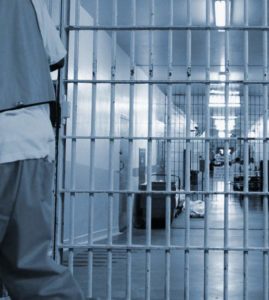
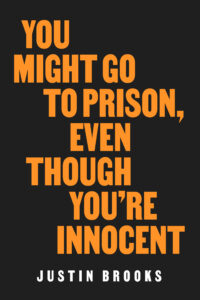
You Might Go to Prison, Even Though You’re Innocent
There is a common belief that if you’re arrested, you are probably guilty because “where there’s smoke, there’s fire.” People assume that only the guilty confess to crimes because why would an innocent person confess to a crime they didn’t commit? And when a person pleads guilty or is convicted by a jury, that’s the end of the matter, in the minds of most people.
In fact, many innocent people are arrested, especially people of color, due to racial profiling and other forms of discrimination by law enforcement. Implicit bias often infects the case as it moves through the criminal legal system – from the initial police stop, to interrogation, arrest, charging, trial and sentencing. This is particularly tragic when a person is charged with a capital crime for which the death penalty is imposed and that sentence is carried out.
However, it is estimated that 10,000 to 20,000 people are currently serving time in prison after being convicted of crimes they did not commit, largely due to prosecutorial misconduct and police misconduct. Unfortunately, even when exonerated, the psychological and physical damage done is so extensive that many people are never able to fully recover from the trauma. In addition, when the wrongful conviction is solely the result of prosecutorial misconduct, those convicted have no legal recourse to be compensated for the wrong done to them because of prosecutorial immunity.
Guest – Justin Brooks criminal defense attorney and law professor has spent decades working to free innocent people from prison. The Founding Director of the California Innocence Project, Brooks is the author of the provocative new book, “You Might Go to Prison, Even Though You’re Innocent.” In it, he discusses false identifications, junk science, lying snitches, and incompetent defense lawyers – which too often lead to the imprisonment of innocent people.
—–


Junior ROTC In High Schools: Pressure To Join
On her first day of high school, Andreya Thomas and several other freshmen at Detroit’s Pershing High School learned they were enrolled in a class called J.R.O.T.C., or Junior Reserve Officers’ Training Corps. School administrators told them the program was mandatory.
Funded by the U.S. military, the program required students to wear military uniforms in class, recite patriotic declarations, and obey orders from an instructor who often yelled at them. When several tried to drop the class, school officials refused permission, even though the Pentagon says that requiring students to take the programs runs counter to its guidelines. The New York Times recently learned that thousands of public-school students were enrolled in J.R.O.T.C. either as a requirement or through automatic enrollment. Most of the schools with high enrollment numbers were attended largely by nonwhite students and those from low-income households.
Critics of Junior ROTC say that the program’s militaristic discipline prioritizes obedience over independence and critical thinking. And as we reported earlier on Law and Disorder, and now noted by the Times, the program’s textbooks often rewrite or downplay the failings of the U.S. government. With its concentration in schools with low-income and nonwhite students, some claim J.R.O.T.C. encourages students to enlist in the military rather than explore other routes to college or jobs in the civilian economy.
Guest – Rick Jahnkow works for two San Diego-based anti-militarist organizations, the Project on Youth and Non-Military Opportunities, or YANO, and the Committee Opposed to Militarism and the Draft. We spoke earlier with Rick about YANO’s J.R.O.T.C. textbook review project.
Hosted by Attorneys Heidi Boghosian, Marjorie Cohn and Julie Hurwitz

—————————————–
CIA Sponsored Terror, Civil Liberties, Human Rights, Truth to Power, War Resister
Podcast: Play in new window | Download


Project YANO, JROTC, and Textbook Project
The Junior Reserve Officers’ Training Corps, or JROTC, is a federal program sponsored by the US Armed Forces in high schools and some middle schools across the nation and at US military bases globally. It currently teaches its lessons to more than half a million students in approximately 3,400 high schools nationwide.
In recent years, the military and its supporters have been promoting the idea of a significant increase in the number of high schools with JROTC—one proposal calls for expanding up to 6,000. Because of this, one nonprofit decided it was time to examine the textbooks used in JROTC classes to see what they are teaching.
The Project on Youth and Non-Military Opportunities, or Project YANO, is a counter-recruitment organization founded in 1984 and based in San Diego country. It released its findings in early July. Their reviewers have backgrounds in classroom teaching or education activists, or special knowledge of subjects JROTC claims to address, such as civil rights, violence prevention, leadership methods, and world history. Team members included current and retired high school teachers, military veterans, and a documentary film producer.
Guest – Rick Jahnkow, a co-founder and board member of Project YANO. Rick worked for 34 years as the organization’s full-time program coordinator. He has researched and organized around the issues of military recruiting, high school Jr. ROTC, and the general militarization of K-12 schools.
—-
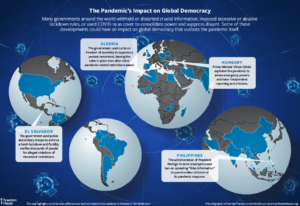
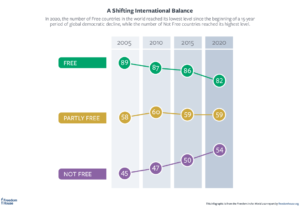
Freedom House 2021 Report: Democracy Under Siege
What if you could assign a grade to countries based on how free they are? Freedom House, a nonprofit organization founded in 1941, does just that. In 1973, it began using social science analysis methods to assess the level of freedom by nation, attaching a numerical score and ranking them as Free, Partly Free, or Not Free.
The report, known generally as Freedom in the World, has been called the “Michelin Guide to democracy’s development” and “essential reading for policymakers and political leaders.”
The 2021 report, “Democracy Under Seige was written by Amy Slipowitz and Sarah Repucci. They noted that the pandemic, combined with economic and physical insecurity along with violent conflict, struck a heavy blow to defenders of democracy. It shifted the international balance in favor of tyranny.
Incumbent leaders, according to the report, increasingly resorted to force when dealing with opponents while “beleaguered activists—lacking effective international support—faced heavy jail sentences, torture, or murder in many settings.”
Guest – Sarah Repucci, Vice President of Research & Analysis at Freedom House. Sarah oversees Freedom House’s flagship publications Freedom in the World, Freedom on the Net, and Nations in Transit. She advises policymakers and business leaders on democracy and human rights around the world, and her commentary has appeared in the New York Times, the Washington Post, CNN, the BBC, National Public Radio, Foreign Policy, and the Journal of Democracy. She previously worked for Transparency International and the Global Business Initiative on Human Rights, and as an independent consultant for several NGOs, and private businesses.

————————————————-








